Participants are listed in alphabetical order (by first name).
Ababacar Diop
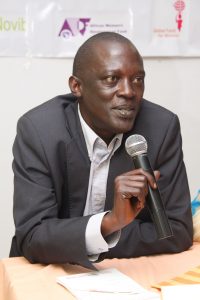 JONCTION, Senegal
JONCTION, Senegal
Ababacar Diop is a lawyer, holding a Diploma of Specialization in Economic, Social and Cultural Rights from the Henry Dunant University College in Geneva, Switzerland. He also holds a Master’s degree in Law from Cheikh Anta Diop University in Dakar. He is an expert in digital rights, active for the past ten years in the promotion and defense of digital rights, including cybersecurity, privacy, protection of personal data, cybercrime, freedom of expression and opinion on the internet.
Ababacar Diop is appointed by decree as Commissioner of the Commission for the Protection of Personal Data of Senegal, (CDP, an Independent Administrative Authority responsible for ensuring compliance and enforcement of the law on the protection of personal data in Senegal). Ababacar Diop is President of the organization called JONCTION, based in Senegal, West Africa.
JONCTION is an organization under Senegalese law that aims to promote and protect digital rights. JONCTION intervenes not only in the field of advocacy and awareness-raising, but also in the field of reflection, research, and analysis around digital rights issues. Ababacar Diop collaborates with several organizations at the international level including Privacy International and Global Partner Digital based in London, CIPESA based in Uganda, Paradigm Initiative based in Nigeria. He is a member of several African civil society networks, including the Organisation de la Société Civile d’Afrique Francophone (OSCAF) based in Benin.
Abdul-Hakeem Ajijola
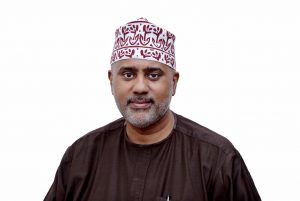 GCFE, Nigeria
GCFE, Nigeria
Abdul-Hakeem Ajijola (AhA), a global Cybersecurity resource is ranked #1 IFSEC, 2020 Global Cybersecurity professionals’ influencers and thought leaders list, is concurrently Chair, African Union Cyber Security Expert Group, Addis Ababa; Chair, Working Group on Cyber Incident Management and Critical Information Protection of #theGFCE, The Hague; and Commissioner, Global Commission on the Stability of Cyberspace (#GCSC), The Hague.
He is a resource person to the ASEAN-Singapore Cybersecurity Centre of Excellence (ASCCE); Expert, supporting United Nations Office on Disarmament Affairs (#UNODA) development of an online training course in “Cyberdiplomacy”, New York, USA. Member panel of experts at the Security Institute for Governance and Leadership in Africa (SIGLA) located with the Faculty of Military Science, Stellenbosch University, South Africa; Resource person, Observer Research Foundation (ORF), New Delhi; Founding member Organisation of Islamic Cooperation – Computer Emergency Response Team (#OICCERT); and initiator of the annual OIC-CERT Global prize, Kuala Lumpur, Malaysia. He is also the Chair, Nigeria Data Protection Bureau (NDPB) Strategic Roadmap and Action Plan (SRAP) Committee; Chair, Nigerian National Cybersecurity Policy, and Strategy review committee; and Chair, Nigeria Computer Society, Cybersecurity Advisory Group.
He is working to kick-start the development of an Africa Cybersecurity Economic sub sector employing thousands of knowledge workers, below 35 years of age, who will profitably drive Cybersecurity solutions value chains. He is supportive of the development of Women Information Security Power Players; looks forward to contributing to the emergence of a cadre of Cyber diplomats across the global south; and believes that human resource capacity development is key to societies wellbeing and progress.
Albert Antwi-Boasiako
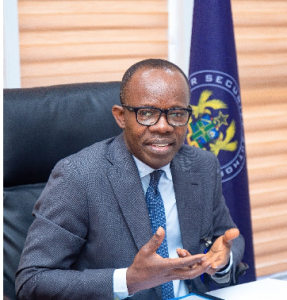
Cyber Security Authority, Ghana
Dr. Albert Antwi-Boasiako, is the Ag. Director-General of the Cyber Security Authority (CSA). Prior to this appointment on October 1, 2021, he served as the National Cybersecurity Advisor and Head of the National Cyber Security Centre (NCSC) from July 2017 to September 2021, leading to the institutionalisation of Ghana’s cybersecurity development which progressed from 32.6% in 2017 to 86.69% in 2020, according to the ITU’s Global Cybersecurity Index (GCI), with Ghana ranked 3rd in Africa and 43rd globally.
Dr Antwi-Boasiako completed his PhD studies at the University of Pretoria in South Africa, introducing the Harmonized Model for Digital Evidence Admissibility Assessment (HM-DEAA) as a ground-breaking contribution to digital forensics standardisation. He also graduated from the University of Trento in Italy for his undergraduate programme and the University of Portsmouth in the United Kingdom for his postgraduate programme, receiving cum laude and distinction respectively.
Dr Antwi-Boasiako has conducted cybersecurity related consulting and assignments for international and local organizations including the United Nations Office on Drugs & Crime (UNODC), United Nations Conference on Trade & Development (UNCTAD), the European Union, Commonwealth Cybercrime Initiative (CCI) of the Commonwealth Secretariat, Global Commission on Internet Governance (GCIG)/Royal Institute of International Affairs (Chatham House) and the Inter-Governmental Action Group against Money Laundering in West Africa (GIABA), among others. He currently serves on the Independent Advisory Committee (IAC) of the Global Internet Forum to Counter Terrorism (GIFCT). He is a Bureau Member of the Cybercrime Convention Committee (T-CY) and the Government of Ghana’s representative on ECOWAS’ Regional Technical Committee (RTC) on Cybersecurity. In June 2021, he was recognised as the world’s 20th most Influential Security Executive in the Cybersecurity Category by IFSEC Global.
Anriette Esterhuysen
 Consultant and convener of the African School on Internet Governance (AfriSIG)
Consultant and convener of the African School on Internet Governance (AfriSIG)
Anriette Esterhuysen was the executive director of the Association for Progressive Communications (APC) – the largest ICT-focused civil society network in the world – from 2000 to 2017. She continues to work with APC as a consultant and convenes the African School on Internet Governance (AfriSIG), a joint initiative of APC, the African Union Commission and Research ICT Africa.
Ms. Esterhuysen has served as Chair of the Multistakeholder Advisory Committee of the United Nations Internet Governance Forum. as well as on the African Technical Advisory Committee of the United Nations Economic Commission for Africa’s African Information Society Initiative (1996-1999), the United Nations ICT Task Force (2002-2005), the World Summit on the Information Society (WSIS) Working Group on Financing Mechanisms (2003-2005), the Commission on Science and Technology for Development Working Group on Internet Governance Forum (IGF) Improvements (2011-2012) and on Enhanced Cooperation (2017-2018), the Global Commission on Internet Governance and the Multistakeholder Advisory Group (MAG) of the IGF (2012-2014).
She was inducted into the Internet Hall of Fame as a Global Connecter in 2013 and received an EFF Pioneer Award in 2015. Ms. Esterhuysen serves as a Commissioner on the Global Commission on the Stability of Cyberspace and as a member of the board of directors of the .ZA (South Africa) domain name authority, ZADNA.
David Moepeng
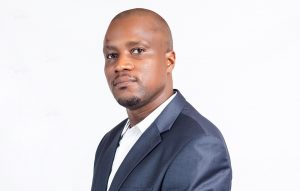 David Moepeng is a cyber psychologist specializing in cyber awareness raising. Through InFuture Foundation, a non-profit organization he founded in Botswana, Moepeng leads educational campaigns to promote cybersecurity awareness among the public.
David Moepeng is a cyber psychologist specializing in cyber awareness raising. Through InFuture Foundation, a non-profit organization he founded in Botswana, Moepeng leads educational campaigns to promote cybersecurity awareness among the public.
He is the coordinator for Cybersmart Botswana, a cyber awareness programme that seeks to sensitise the public about cybersecurity threats facing internet users as well as promoting safe online habits. The programme comprises of various targeted campaigns such as Cybersmart Champions, which is a youth peer-to-peer awareness raising campaign and Cybersmart Girls, which involves school presentations and informational messages on threats facing adolescent girls in cyberspace.
In Future Foundation also runs an annual competition called Cybersmart Challenge through which the youth is encouraged to learn about cybersecurity and then create informational videos educating their peers about how to stay safe online. Moepeng holds a Masters in Cyberpsychology from Nottingham Trent University in the UK.
Edetaen Ojo
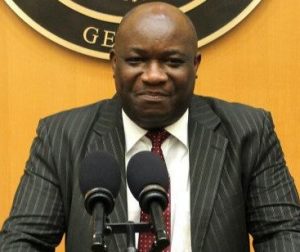 Media Rights Agenda, Nigeria
Media Rights Agenda, Nigeria
Edetaen Ojo is Executive Director of Media Rights Agenda in Nigeria. He is also Chair of the African Freedom of Expression Exchange (AFEX), a network of freedom of expression organizations in Africa; and a member of the Advisory Network of the Freedom Online Coalition.
He is also a member of the National Steering Committee of the Open Government Partnership (OGP) in Nigeria and a member of the Board of Directors of International Media Support (IMS), an international media development organization based in Copenhagen, Denmark.
He is interested in AfriSIG2022 as he sees it as a great opportunity to improve his knowledge and understanding of internet governance through knowledge and experience sharing, particularly with respect to international cybersecurity issues and processes.
Elizabeth Wuraola Kolade
 Defence Space Administration, Nigeria/Nigeria CERT
Defence Space Administration, Nigeria/Nigeria CERT
Elizabeth Wuraola Kolade is a Cybersecurity professional. She has been involved in the strategy, creation and implementation of security measures and the delivery of cyber security awareness across critical organizations.
Elizabeth has served as an Analyst, Technical Specialist and Advisor over the course of her career across government, the private sector and civil society. She has embarked on numerous campaigns to promote end-user security education in and outside Nigeria. Her interest spans Incident Response, Cyber policy, Cyber Capacity Building, and Cyber Diplomacy, all geared towards enhancing and sustaining international peace and security.
Elizabeth served as a member of the presidential committee, which reviewed and produced Nigeria’s National Cybersecurity Policy and Strategy (NCPS) 2021. She is a long-serving member of the Cyber Security Experts Association of Nigeria (CSEAN) and remains an ever-avid advocate for the education of women in technology.
Enrico Calandro
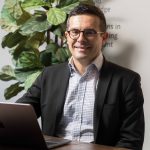 Enrico Calandro (PhD) is the Project Leader with the EU-funded Project Cyber Resilience for Development (Cyber4Dev), a flagship cyber capacity-building programme of the European Commission.
Enrico Calandro (PhD) is the Project Leader with the EU-funded Project Cyber Resilience for Development (Cyber4Dev), a flagship cyber capacity-building programme of the European Commission.
As a research associate at Research ICT Africa, he has conducted digital policy and regulation research to facilitate evidence-based and informed policy making for an improved, rights-based and secure access, use and application of digital technologies in Africa and beyond.
As the co-founder and co-director of the Cybersecurity Capacity Centre for Southern Africa at the University of Cape Town, he has led initiatives to deploy the Cyber Maturity Model for Nations in Africa.
Ephraim Percy Kenyanito
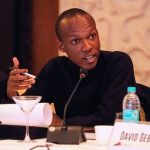 Ephraim is a trained lawyer, a Certified Project Management Professional (PMP – PMI USA), and an Associate of the Chartered Institute of Arbitrators (the UK and Kenya) and a Certified Professional Mediator (MTI East Africa), with over nine years in the African and global International Trade, Technology, Media and Telecommunications industry.
Ephraim is a trained lawyer, a Certified Project Management Professional (PMP – PMI USA), and an Associate of the Chartered Institute of Arbitrators (the UK and Kenya) and a Certified Professional Mediator (MTI East Africa), with over nine years in the African and global International Trade, Technology, Media and Telecommunications industry.
Between 2014 and 2018 he served as the youngest advisor on Internet Governance to two UN Secretary Generals: Ban Ki–moon and António Guterres. Additionally, since 2012 he has executed international development projects with a diverse range of leading international institutions across 46 African Union member countries and served as an Independent Expert to two ICANN Implementation Advisory Groups.
Presently, Ephraim does research on the nexus of Digital Infrastructures, Digital Trade, Electronic Commerce and Data Protection and Open Data with an international institution, ARTICLE 19. He is also a member of the GFCE Advisory Board, Digital Peace Now, Siasa Place, European Commission GIPO advisory group among other board positions. He is also a full member of the International Association of Privacy Professionals (IAPP), the Project Management Institute (PMI) and Pan African Lawyers Union (PALU).
Frederico Links
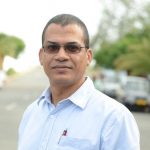 Namibia Media Trust
Namibia Media Trust
Frederico Links is a Namibian journalist, researcher and freedom of expression advocate. As a researcher he is affiliated to Namibia’s leading independent think-tank, the Institute for Public Policy Research (IPPR), where he coordinates a number of projects. In both his journalism and research, Links has a strong focus on good governance, human rights (including digital rights), corruption, rule of law, and transparency and accountability. For the IPPR, he is currently coordinating the ‘Mainstreaming human rights in cybercrime law and policy making’ project, which is a collaboration with international digital rights organisation Global Partners Digital (GPD).
He is also the coordinator of the Democracy Report project of the IPPR, which is funded by the Finnish Embassy in Namibia, and focuses on the activities and events happening in and around the Namibian parliament, as well as the Namibia Fact Check project, which verifies information and debunks online disinformation. Links also coordinates the Procurement Tracker Namibia project of the IPPR, which monitors public procurement. He is also involved as a fellow in the digital surveillance research project of the Media Policy and Democracy Project (MPDP) of the School of Communication, at the University of Johannesburg, South Africa.
Furthermore, he coordinates a six-country southern Africa-focused digital rights project for the Association for Progressive Communications (APC), funded by the Open Society Initiative of Southern Africa (OSISA). Links is the founding and current chairperson of the Access to Information in Namibia (ACTION) Coalition of civil society and media organisations and social activists. He is also the founding and former chairperson of the Namibian Internet Governance Forum (NamIGF).
Geoffrey R Zgambo
Zambia Police Service
Geoffrey R Zgambo is a law enforcement officer under the Zambia Police Service and specialised in Financial and Cybercrimes investigations since 2009. He holds a Diploma in Computer Systems Engineering and Hardware Maintainance, Certificates in Cybercrimes investigations obtained under Department of Justice USA, and is currently a (4th) year BSc Degree student in Systems Information Technology at University of Lusaka.
He is a resource person to an International 24/7 group on cybercrimes. Supportive to other Law enforcement agencies both within and on the international level.
Haguma Jimmy
 Uganda Communications Commission
Uganda Communications Commission
Haguma Jimmy is the Chief Security Officer at the Uganda Communications Commission since May 2019 to date. Previously, he was the Head IT Security Infrastructure (UPF) (February 2019 to May 2019) and Acting Commissioner of Police Cyber Crimes, Directorate of Forensics Services (Ag. CP/CC) (July 2018 to February 2019), Acting Commissioner of Police Information Technology and Information Management (Ag. CP/IT&IM) (from 2015 to July 2018), Acting Commissioner of Police Electronic and Counter Measures (Ag. CP/ECM) (2012-2015), Head of ICT Training at Police Training School Kabalye – Masindi (2009-2012).
He has fourteen years of Police experience. Post Graduate Diploma in Social Justice (PGD SJ) at the Makerere University and a Bachelor of Information Technology & Computing (BITC). He also is a Microsoft Certified Systems Engineer (MCSE), Certified Ethical Hacker (CEH) & Certified Hacker Forensic Investigator (CHFI), with a Masters of Science in Information Systems, Police Headquarters, Naguru– Directorate of Forensic Services.
Membership/Affiliation of professional associations: International Association of Police Academies (INTERPA), Commonwealth Cybercrime Initiative Forum (CCIF), Association of Certified Fraud Examiners (ACFE), Information Systems Audit and Control Association (ISACA), and The International Council of Electronic Commerce Consultants.
Khadijah El-Usman
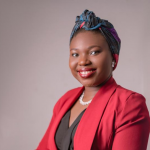 Paradigm Initiative, Nigeria
Paradigm Initiative, Nigeria
Khadijah El-Usman is the lead for Anglophone West-Africa at Paradigm Initiative with a focus to advance internet freedom, and monitor the legal and policy framework around the region, to ensure that citizens’ rights are protected online.
Khadijah is a legal practitioner and has managed research and advocacy projects on Women’s Rights online, Global Disinformation, Data Protection, Digital Identity, Strategic Litigation and other issues with Paradigm Initiative. She was an Internews Data Accountability, Protection, and Transparency (ADAPT) fellow.
Lillian Nalwoga

Collaboration on International ICT Policy for East and Southern Africa (CIPESA), Uganda
Lillian Nalwoga is a technology enthusiast and advocate interested in promoting and advancing the appropriate use of ICT for empowerment and development. She has over 10 years in Internet policy research and implementing ICT4D projects in Africa with active involvement in Internet governance debates at the national, regional and global levels. She has currently coordinates the Uganda Internet Governance Forum (UIGF) and coordinated the East African Internet Governance Forum (EAIGF). Lillian currently serves on the Africa IGF and has served on the UN – Multi–Stakeholder Advisory Group (MAG) of the global Internet Governance Forum from 2012 – 2014. She currently serves on the Global Network Initiative (GNI) Board and is a member of the Carnegie Endowment Digital Democracy Initiative.
She works with the Collaboration on International ICT Policy for East and Southern Africa (CIPESA) and also co–founded the Internet Society Uganda Chapter. She’s specifically interested in internet freedom/rights, eDemocracy, child online safety, internet governance, ICT and entrepreneurship, technology and innovation, business management, e–government, ICT4D and internet policy. She holds a Masters in Digital Media and Society from Uppsala University, Sweden; a Bachelor’s of Development Studies from Makerere University (Uganda) and a Postgraduate Diploma in Management from the Uganda Management Institute (UMI) as well as advanced training in several internet
policy topics. Her interest in participating in this year’s AfriSIG is because it presents a unique opportunity for her to learn about current cyber security concerns and how to address gaps in existing cyber policy frameworks on the continent.
Margaret Nyambura Ndung’u
 Policy and Regulation Initiative for Digital Africa (PRIDA)
Policy and Regulation Initiative for Digital Africa (PRIDA)
Margaret Nyambura Ndung’u is an Information Scientist with over 20 years’ experience in the digital space. Her current fields of interest are internet governance, cyber diplomacy, cybersecurity, gender equity and sensitivity in the digital space, and child online safety. She advocates for meaningful and affordable connectivity for all, accompanied by balanced awareness creation of the pros and cons of digital presence, for a real inclusive and progressive digital transformed society for sustainable social-economic development.
Dr. Ndung’u received her PhD in computer science from the University of Nairobi in 2011. She is currently working as a Senior Regulatory and Internet Governance Expert for the Policy and Regulation Initiative for Digital Africa (PRIDA), a project of the African Union Commission and funded by the European Union.
Martin Koyabe
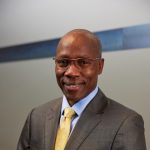 Global Forum on Cyber Expertise
Global Forum on Cyber Expertise
Martin has over 25 years of experience working on ICT deployment, innovation, research and development, policy, regulation, and legislation. He is currently a consultant and lead technical expert for the Global Forum on Cyber Expertise (GFCE) and leading the African Union (AU)-GFCE Collaboration Project across 55 AU member states.
Prior to joining the GFCE, he was the Head of Technical Support & Consultancy (TSC) Division at the Commonwealth Telecommunication Organisation (CTO) for 7 years, and was responsible for managing the delivery of ICT technical support and development assistance to The Commonwealth (which consists of 54 countries) and beyond, including Malawi (host of Africa IGF).
Martin is accredited for being among the first Kenyan Internet engineers to bring full Internet deployment to Kenya in the mid-90s, while working as Principal Engineer for African Regional Centre for Computing (ARCC), Nairobi, Kenya. He has a PhD in Communications Engineering and holds several patents on ICT and telecommunications. He is an alumnus of Egerton University (KE), Nairobi University (KE), Bristol University (UK), University of Aberdeen (UK), Cambridge University, Judge Business School (UK), and Harvard Kennedy School (USA).
Moses Owiny

Centre for Multilateral Affairs
Moses Owiny is the Chief Executive Officer, Centre for Multilateral Affairs (CfMA). The CfMA is a platform that seeks to inform and shape global south perspectives in policy discourses at national, regional and global levels through evidence-based research and advocacy. His research work recently focused on cybersecurity and state capacity in Uganda and on how internet shutdowns undermine Cyberstability in DR Congo, Tanzania and Uganda.
His latest research examines the influence of cyber norms in fostering Uganda’s bi-lateral relations for responsible state behavior in the cyberspace. In June 2021, he served as an external Co-Chair and Programme Committee member for the 10th edition of RightsCon under the category ‘Cyber Norms, Accountability, and Practice’. He is actively engaging in the work of the UN First Committee of the Open Ended Working Group (OEWG) in the field of Information and Communications Technology in the context of international security and have made both oral and written submissions to the informal stakeholder consultations held in December 2021 and March 2022. He is an alumnus of the 2014 African School of Internet Governance (AfriSIG).
Muheeb Saeed
 Media Foundation for West Africa
Media Foundation for West Africa
Muheeb Saeed is a Senior Programme Officer under the Freedom of Expression programme. He is in charge of coordinating the organisation’s freedom of expression monitoring and campaigns. Muheeb is also responsible for ensuring excellent stakeholder relations between the MFWA and its correspondents, and national partner organisations across West Africa.
He graduated from the Ghana Institute of Journalism in the year 2000. Between 2001 and 2004, he worked as a radio broadcaster. Muheeb also holds a degree in Social Science (French and Law) from the Kwame Nkrumah University of Science and Technology. After a brief adventure into the teaching profession, Muheeb returned to the communication field in 2012 when he was appointed Public Relations Officer of Accra Hearts of Oak Sporting Club. He held this post till August 2015 when he joined the MFWA. As a Freedom of Expression and Access to Information advocate, he has participated in a number of forums including three IGFs (Jalisco, Mexico 2016, Paris 2018 and Berlin 2019). The intersection between the internet and freedom of expression, including media freedom underpins his interest in digital rights issues.
Nompilo Simanje
 Media Institute of Southern Africa
Media Institute of Southern Africa
Nompilo Simanje has been at the heart of campaigns promoting the right to privacy, free expression and access to information both online and offline. She is an expert on the intersection of technology and the law and technology and human rights in Southern Africa. Ms Simanje is currently working as the Legal and ICT Policy Officer for the Media Institute of Southern Africa, leading advocacy campaigns, research interventions, capacity building workshops and strategic litigation aimed at fostering the promotion of fundamental rights.
In this role, she has made submissions at different fora including parliament and stakeholder meetings advocating for cybersecurity laws that value human rights. Ms. Simanje was at the forefront of commissioning and editing several reports including the one titled “Cybersecurity and Cybercrime Laws in the SADC Region: Implications on Human Rights”which unpacks the provisions in cybersecurity laws, the issues that have been noted from the enforcement of these laws and strategies to promote law centered on human rights in the region.
Obioma Okonkwo
 Media Rights Agenda, Nigeria
Media Rights Agenda, Nigeria
Obioma Okonkwo is a lawyer by profession and passionate about promoting and defending digital rights, freedom of expression, media freedom, data protection, and freedom of information. She is a legal officer with Media Rights Agenda (MRA), a non-governmental organisation based in Nigeria. Her work revolves around research, advocacy and litigation on digital rights, freedom of expression, freedom of information, media freedom and digital identity issues. Obioma is also a founding member of the West Africa Media Lawyers Association. She has undergone training on freedom of expression and media freedom under the auspices of the Media Legal Defence Initiative (now Media Defence), a not-for-profit organisation based in the UK. She is a 2021 fellow of AFRISIG.
Obioma is using her expertise to advocate for freedom of expression, digital rights, freedom of information, and media freedom in Nigeria and beyond. Her hobbies playing scrabble, traveling, eating exotic meals, and listening to good music.
Peterking Quaye
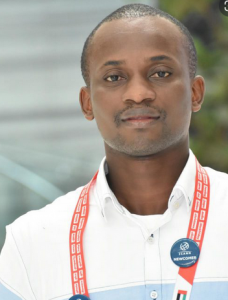 West African ICT Action Network, Liberia
West African ICT Action Network, Liberia
Peterking Quaye is a 2 times Internet Corporation for Assigned Names and Numbers (ICANN) Fellow and an Africa Union-CIEFA STEM Ambassador from Liberia, affiliated with the West Africa ICT Action Network (WAICTANet) based in Liberia. He serves as a technical consultant and Team lead. His interest in internet governance revolves around Data privacy, Digital inclusion, Media Rights, Cybersecurity, Sustainable Access, Digital Security and other internet-related issues that affect the West African digital economy. Peterking has attended and contributed either as a participant or a speaker at a number of UN’s annual Internet Governance Forum (IGF) including as a TAC-Youth IGF Ambassador for Liberia from 2016 to present on regional and international levels; has attended ICANN meetings as an ICANN Fellow and a number of other ICT-related events in Africa and worldwide.
Peterking was a former Youth Information Technology Associate at the Africa Union Commission in Addis Ababa, Ethiopia, and host of key global ICT events in Liberia (Safer Internet Day, ITU -Girls in ICT (Liberia), Africa Code Week, Global Encryption Day in Liberia, Liberia Digital Inclusion Roundtable, among others). He has more than 10 years of experience in Information and Communication Technologies development issues, including project and program management in developing countries (IT Security Training, Digital education, etc.) ICT for Development, Cybersecurity Strategy and Policies, and as Civil Society member of key ICT network platform. He is currently the National Country partner for Publicis, and Coordinator/National Convener for the Republic of Liberia, Internet Governance Forum (Liberia IGF), and a member of ISOC (Liberia, Ghana, and Australia). Holds a Certificate in Network Administration among other academic qualification.
Sheetal Kumar
 Global Partners Digital
Global Partners Digital
As Head of Global Engagement and Advocacy, Sheetal leads GPD’s global engagement and advocacy portfolio across GPD’s policy areas (Trust and Security, Online Content and Emerging Tech) with the aim of shaping global policymaking processes so that they are more open, inclusive and transparent, and lead to policy outcomes that are human rights respecting. She oversees global advocacy engagement including the development of policy positions, research and scoping, development and delivery of tailored advocacy strategies, training and capacity building of civil society partners and other stakeholders, as well as relationship building and management across GPD’s policy areas.
Sheetal holds an MSc in Media, Communications and Development from the London School of Economics and an MA in International Relations with French from the University of St Andrews. Her studies there included global internet and communications policy, the evolution of the internet, communication for development, media in the global South and, more broadly, theories relating to power, media and communications and technology.
Promoting participatory, inclusive and democratic policy processes and developing effective communication across communities have always been the focus of Sheetal’s work. Before joining GPD, Sheetal worked for the Institute for Environment and Development (IIED). Prior to this, she lived and worked in Senegal for two years where she coordinated communications, provided fundraising support and managed the website for the Senegalese health organisation, Enda Santé. She has also provided support to the Knowledge Management Department of UNESCO West Africa’s regional headquarters, and has worked as a teacher and an editor for the HIV/AIDS charity AVERT. Sheetal speaks English and French.
Thobekile Matimbe
 Paradigm Initiative
Paradigm Initiative
Thobekile Matimbe is a human rights lawyer, researcher and social justice activist. She serves as a Partnerships and Engagements Manager at Paradigm Initiative advocating for digital rights in Africa. She has over 10 years legal and civic engagement experience and has served in the Zimbabwean judiciary as a magistrate and worked in national and regional human rights organisations defending human rights.
Thobekile has expertise in advocacy, community management and partnership engagements with active participation in over 10 regional and international coalitions advancing digital rights. She is a 2018 Mandela Washington Fellow and Board Chairperson for Emthonjeni Women’s Forum (EWF), an organisation in Zimbabwe fostering a gender-based violence-free society.
Verónica Ferrari

Association for Progressive Communications (APC)
Verónica is Global Policy Advocacy Coordinator at the Association for Progressive Communications (APC), where she coordinates the organization and members’ involvement in various global policy spaces such as the UN OEWG, the UN Human Rights Council, and the OECD, among others. Verónica also represents APC at the Freedom Online Coalition Advisory Network where she co-leads the Digital Equality Task Force.
Before joining APC, she served as a senior policy advisor at the Government Secretariat of Modernization in Argentina, where she led the work with the OECD on digital government, open government, and innovation. In that role, Verónica also represented Argentina at the OECD Public Governance Committee and coordinated the work on gender at the G20 Digital Economy Task Force during the 2018 Argentinian Presidency. Previously, she worked at the Berkman Klein Center at Harvard, the Center for Studies on Freedom of Expression and Access to Information (CELE), and as a consultant with several digital rights organizations in Latin America. Verónica holds a Bachelor’s degree in Communication Sciences from the University of Buenos Aires and a Master’s degree in Public Policy from Central European University. Her work focuses on digital inclusion, and gender and technology.
Victor Kapiyo
 Victor is a lawyer and a Trustee of KICTANet and is keen on research on emerging public policy issues and how they intersect with ICTs and human rights in areas such as internet freedom, governance, privacy and cybersecurity. He also manages Lawmark Partners LLP and is a researcher for the annual CIPESA State of Internet Freedom in Africa series.
Victor is a lawyer and a Trustee of KICTANet and is keen on research on emerging public policy issues and how they intersect with ICTs and human rights in areas such as internet freedom, governance, privacy and cybersecurity. He also manages Lawmark Partners LLP and is a researcher for the annual CIPESA State of Internet Freedom in Africa series.
He is the Vice-Chairperson of Youth Alive! Kenya, a member of the Law Society of Kenya and the Kenyan Section of the International Commission of Jurists (ICJ Kenya). Victor also represents KICTANet in the Advisory Network of the Freedom Online Coalition.
